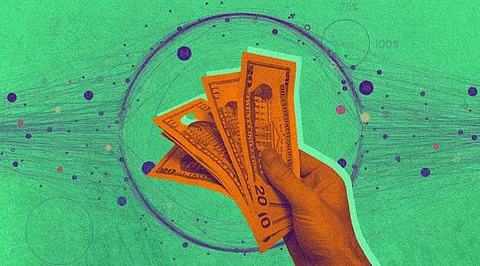
- Insights
- Cryptocurrencies
- Stocks
- White Papers
- Industry
- Geography
- Insights
- Cryptocurrencies
- Stocks
- White Papers
- Industry
- Geography


The emergence of open banking is changing the way individuals manage and engage with their money. Financial service companies may deliver more personalized services for their consumers with open banking by evaluating data from a variety of sources.
Open Banking is a regulatory framework designed to encourage bank competition. It will stimulate improved services for customers by opening up data. Various parts of the world, however, take different approaches to this. Open Banking attempts to stimulate innovation in some areas, such as Australia, by codifying information assets with bank clients, thereby making institutions data' custodians.' Open Banking in Europe aims to "open up the usual banking industry and create more competition between incumbent banks, neo-banks, and fintech startups that use consumer data," according to David Andrzejek, DataStax's Growth Strategy.
For instance, a consumer could give a comparison website access to the system to discover the best mortgage or insurance rates. The software may then analyze the data to spot trends and find strategies to boost environmentally friendly purchasing among their bank partner's customers.
Customers choose e-banking because it gives them greater control over their data. It also allows consumers to choose from a range of services from several providers, resulting in increased competition and lower prices for clients. The emergence of open banking is bringing the most crucial change by increased public awareness of how companies manage personal information and a need for more tailored solutions from financial institutions. Third-party connections help consumers' lives become hassle-free. Individuals and organizations may utilize third-party applications to improve their daily lives rather than depending on their bank account's archaic technology and user experience. A client savings and investing app, for example, might use programming to automatically compute to see how much a customer could save each week.
Big data is changing the way commercial banking companies operate. By analyzing vast volumes of data, professionals can make quicker and more informed decisions about their goods, services, and marketing strategies. Big data has supported the development of historically unprecedented financial tools. Like smart credit and debit cards with built-in fingerprint scanners, mobile payment apps that can accurately predict when a customer is willing to splurge so that pertinent offers can be delivered at the right time, and devices that can help consumers save money by canceling memberships they no longer use. The benefits of having big data across many industries will be crucial to the success of open banking. The financial corporations that can control information will be successful.
Open banking holds tremendous promise for businesses of all sizes. By sharing customer data with approved third-party vendors, organizations, and more might gain a deeper understanding of their customers and their buying habits. The rise of open banking will change the way businesses offer services. People who can seize the opportunities it provides will undoubtedly gain a competitive advantage over others.
"Open banking has a big chance to create new possibilities through payment initiation as payments become more customized and data-driven. Customers can use this technology to connect directly to their bank and approve transfers from their account without ever leaving the mobile or online environment where they would be shopping. In this process, Open Banking will be critical, linking customer data from numerous solutions to provide consumers with a completely integrated and personalized payment experience "Ian Johnson, SVP and MD of Marqeta Europe, remarked.
Big data is altering fintech for the better, and this trend will only grow in the coming years. To stay competitive, financial service companies must embrace big data and open banking to give the best possible services to their consumers. "Open banking prohibits traditional financial institutions from leveraging their market dominance to stifle or stifle developing innovative technologies," said Bill Verhelle, QuickFi's founder and CEO. As a result, to stay competitive, several of the more recognized firms in the financial sector are acquiring or partnering with fintech startups.
"You can be confident that the danger and opportunity that Open Banking offers are being taken seriously when an organization like Visa buys Tink, a Swedish API fintech with just 400 workers, for $2.15 billion," said HarpreetOberoi, Vice President of Customer Success at Infostretch.
Companies who make use of open banking's advantages may acquire a considerable competitive advantage. It'll only be a question of time until online banking reaches beyond finance and into other industries, becoming the standard. According to the government authorities, the shift toward open banking is inescapable. Open banking will be crucial in the future of computing and business.
